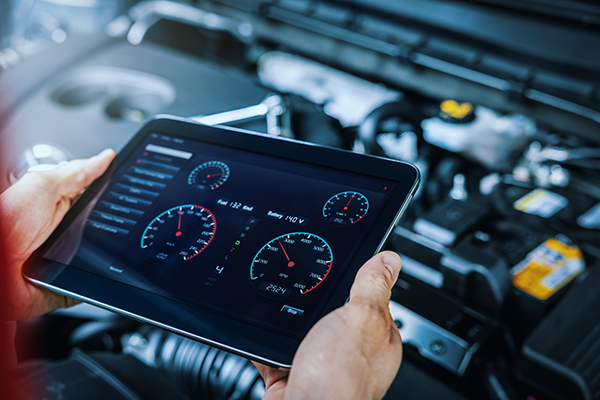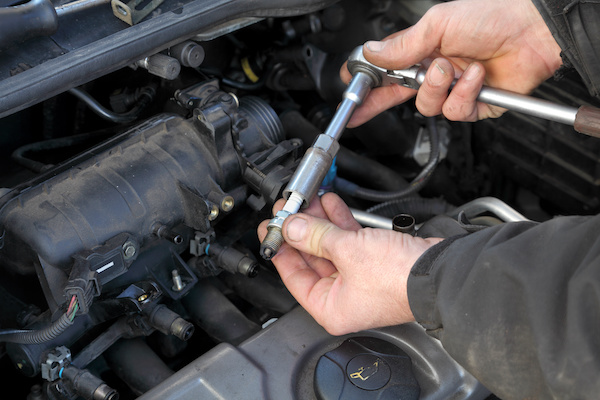Posted on 10/30/2023

We understand that your safety and peace of mind are of utmost importance while driving on the roads of life. Keeping your brake system healthy is crucial to achieving these goals. It takes a proactive approach to optimize your vehicle's performance and ensure a smooth and secure driving experience. By consolidating the various types of brake services into one comprehensive visit, you can keep your brake system in top condition. The Different Types of Brake Services Brake services can encompass a range of crucial maintenance tasks, including brake pad replacements, rotor resurfacing or replacement, brake fluid flushes, brake line inspections, and overall system checks. Each of these services is essential in ensuring the effective operation of your vehicle's braking mechanism and contributes to a secure and reliable driving experience. Why ... read more
Posted on 9/30/2023

Your car is more than just a mode of transportation; it's a trusty companion on life's journey. Whether it's the daily commute, a weekend road trip, or simply running errands, your vehicle plays a significant role in your life. But just like any companion, it needs care and attention to keep performing at its best. That's where a simple inspection and diagnostic service comes into play. 1. Early Problem Detection Imagine having a minor issue with your car, like a loose bolt or a worn-out belt. These problems may not be immediately apparent, but over time, they can escalate into major, costly repairs. A routine inspection and diagnostic service can spot these issues early on, allowing you to address them before they spiral out of control. 2. Improved Safety Your safety on the road should always be a top priority. Regular inspections can identify potential safety hazards like worn brakes, malfunctioning lights, or tire issues.&n ... read more
Posted on 8/25/2023
.jpeg)
The drivetrain is a fundamental component of your vehicle that is crucial in transmitting power from the engine to the wheels. It encompasses a complex system of parts that work together to deliver the driving experience you enjoy. Components of the Drivetrain The drivetrain consists of several key components, including: Engine: The source of power that generates the energy needed for your vehicle to move. Transmission: This component controls the power and torque generated by the motor and transfers it to the wheels. Driveshaft: A rotating shaft that transmits power from the transmission to the differential. Differential: Located between the drive wheels, the differential allows the wheels to rotate at different speeds when turning. Axles: These shafts connect the differential to the drive wheels, transmitting power to each wheel. Types of Drivetrains There are different types of drivet ... read more
Posted on 7/31/2023

Outdoor adventures, beach outings, and road trips are best during the summer. During this time, your car's exterior gets exposed to dirt, dust, and the sun's UV rays. Such exposure is harmful and should be controlled. Waxing and Detailing Tips for the Summer Let's look at good cleaning habits to protect your car during summer. 1. Wash Your Car Regularly Regular washing is the foundation of maintaining a clean and protected exterior. Use a microfiber mitt or a pH-neutral soap and sponge to gently remove dirt and grime without scratching the paint surface. Rinse thoroughly with clean water after washing. 2. Perform Paint Decontamination Over time, contaminants like tree sap, bird droppings, or road tar can bond with your car's paintwork if left unattended. Use a clay bar, clay mitt, and lubricant to safely remove these stubborn particles that regular washing cannot eliminate. 3. Apply High-Quality Wax or Sealant Waxing provides additional protection against UV ray ... read more
Posted on 6/27/2023

Usually, multiple drivers conclude that facing trouble starting the engine emanates from a faulty car battery. Although it could be the case, other issues, including faulty or worn-out spark plugs, can make your car fail to start. Watch out for these spark plug problems to know when you need to replace them for your car to work effectively. Engine Misfires An engine misfire often occurs when at least one spark plug is worn out. In simple words, an engine misfire is when your car sends raw fuel to the exhaust, damaging the catalytic converter, causing low fuel economy, and causing high exhaust emissions. When you notice any of these issues, visit an auto care shop immediately for troubleshooting service of the spark plugs. Trouble Starting the Car Dirty, snapped, and worn-out spark plugs make it strenuous for them to deliver the spark required to ignite your car's engine, mostly during cold weather. You'll notice this issue when your vehicle displays a jerky start or cranks ... read more